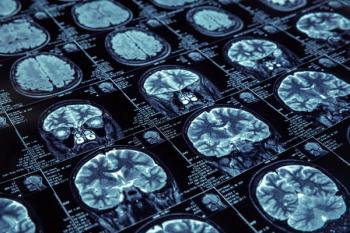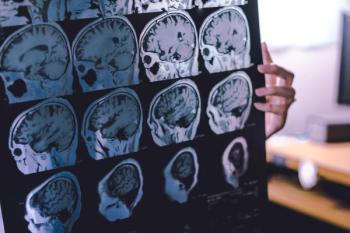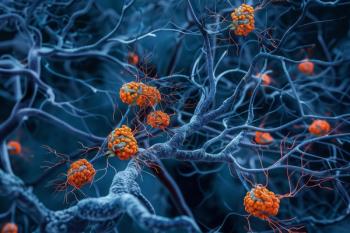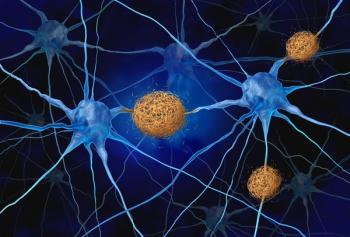
Memantine/donepezil and everolimus are used to treat dementia of the Alzheimer type and tuberous sclerosis complex-associated subependymal giant cell astrocytoma, respectively.

Memantine/donepezil and everolimus are used to treat dementia of the Alzheimer type and tuberous sclerosis complex-associated subependymal giant cell astrocytoma, respectively.

Many treatments are off-label, so pharmacists can educate clinicians and help patients with access.

The report from the Office of Inspector General highlights inconsistencies, lack of transparency, and the need for stronger safeguards.

The test meets a critical unmet need for patients with Alzheimer disease who have not yet been undiagnosed.

Hokkaido scallop oil plasmalogen and Apoaequorin have both been posited to improve brain health.

The pharmacist’s role includes educating and making recommendations, collaborating with health care professionals, and observing early signs of cognitive impairment in patients during interactions.

As an investigational monoclonal antibody, posdinemab targets the mid-domain of AD-specific phosphorylated tau.

These inequalities, which can include socioeconomic disparities, show neurological changes associated with aging and dementia.

New mechanisms of action are proving more effective than ever, offering slowed progression.


Policies that focus on earlier diagnosis, treatment initiation, and expanded access to treatment can further improve treatment and health equity impacts.

High fluctuations (in the top 25%) in total cholesterol were associated with a 60% increase in dementia and a 23% increase in cognitive decline.

Use of antitherapeutic medication prescribed for herpes zoster related to lower risk of subsequent dementia.

There has never been such widespread and popularized use of compounded products due to shortages. Will consumers rise up with pitchforks if the party is shut down?

For up to 6 years, cognitive remediation and transcranial direct current stimulation slowed cognitive decline associated with major depressive disorder in remission and mild cognitive impairment.

Disruptions in the salience network function are shown to influence the severity of mild behavioral impairment (MBI) symptoms.

Poor sleep quality is directly related to mortality risk before adjusting for lifestyle or health-related factors, and dementia was noticeably linked to mortality risk in older White males.

The authors note this is the first study to assess cerebrovascular endothelial extracellular vesicles within a cognitive condition.

The chief product and strategy officer at Linus Health is hopeful that pharmacists can be key players in the detection of mild cognitive impairment.

Using the term "pseudodementia" contributes to the mismanagement and mistreatment of the disease.

ALZ-801 has now progressed to the phase 3 APOLLOE4 study, designed to evaluate efficacy, safety, and biomarker and imaging effects.

Despite questions and controversy around some clinical research, new understandings of the pathophysiology of the disease are pushing treatments forward.

The Alzheimer disease treatment landscape is evolving with new FDA-approved antibody therapies and advancements in biomarker testing to enable earlier diagnosis and intervention.

The study may serve as a foundation for future investigation regarding dietary recommendations to support the treatment of Alzheimer disease.

Findings from 2 large datasets suggest hormone therapy may reduce Alzheimer risk, hippocampal atrophy, and cerebrovascular disease.